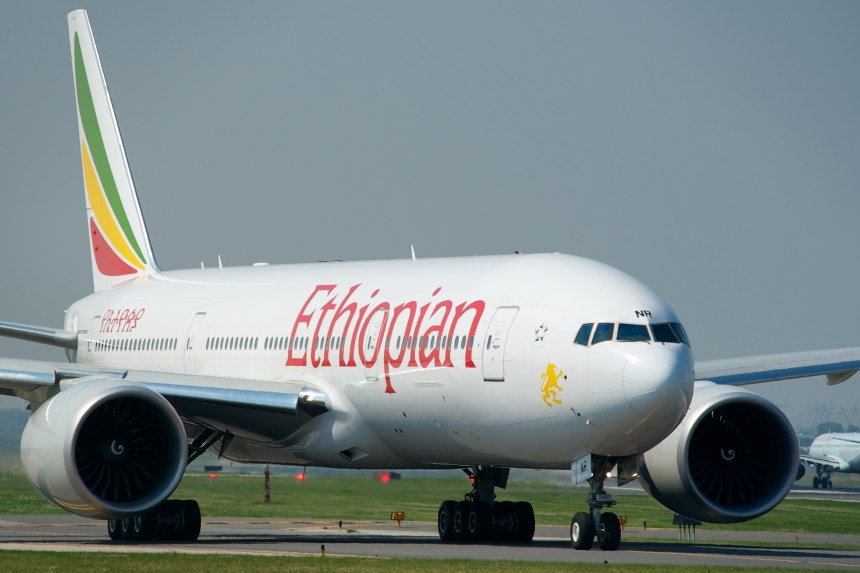ETHIOPIAN AIRLINES REVENUES RISE
By Paul Ndiho
Ethiopian airlines is one of Africa’s most profitable air carriers, reporting an increase in revenues over its last fiscal quarter. However, the airline was unable to repatriate about $220 million held in local currency in Nigeria, Egypt and some other African countries because of foreign exchange shortages in those countries. 
Africa’s Ethiopian airlines is a profitable carrier in a troubled industry, but, it has been experiencing steady growth.
Despite us president Donald trump’s executive order on immigration. The order imposes a 90-day entry ban for people from Iraq, Iran, Syria, Somalia, Sudan, Libya and Yemen. The carrier flies to more than 69 international destinations including the United States. Ethiopian airlines’ chief executive Tewolde Gebremariam said the order temporarily halting immigration from seven Muslim-majority states was creating confusion for passengers but was not having much impact overall on its operations.
“Well operationally it has not created any disruption to us; either in our schedule or customer service because once the executive order was issued, we distributed to our system, and there was no big issue. But it is creating an atmosphere that people are confused, so they are not traveling so it is going to bring our travel demand down, and it is going to create a big problem to our performance.”
Ethiopian airline’s revenue rose 10.3 percent about $2.43 billion in the 2015/16 fiscal year, while passenger numbers climbed 18 percent to 7.6 million. Net profit was up 70 percent. The state carrier is sub-Saharan Africa’s biggest by revenue and has been rapidly expanding in its bid to become a global player through its increasingly crowded hub in Addis Ababa. The carrier wants to increase revenue to $10 billion by 2025, and expand its fleet to 140 aircraft from less than 90 now, with sights on Asia but the airline still faced challenges, particularly in African states where foreign exchange shortages meant it could not repatriate earnings held in local currency.
“So today among these four countries between Nigeria, Angola, Sudan and Egypt, we have 220 million worth dollars of local currencies. Whether it is in naira in Nigeria or kwanza in Angola or the Egyptian pound or the Sudanese pound. Because there is a severe shortage of foreign currency and foreign exchange, so we are not able to take whatever we sold. So it is stuck there, it has been trapped for more than two years and it is subject to devaluation and this is a huge challenge for us and for the other African countries.”
Gebremariam also added that the issue undermined the benefits of an oil price drop during 2015/2016. The falling oil prices in the period had also undermined business from those African nations. With the addition of the Boeing 787-8 Dreamliner’s and airbus a350 planes to its fleet, Ethiopian airlines, a state owned carrier, will be stiff competition for other African carriers — including south African airlines and Kenya airways.
In addition to adding routes to china, Ethiopian airlines is also considering adding Jakarta and Singapore to its destinations this year.
